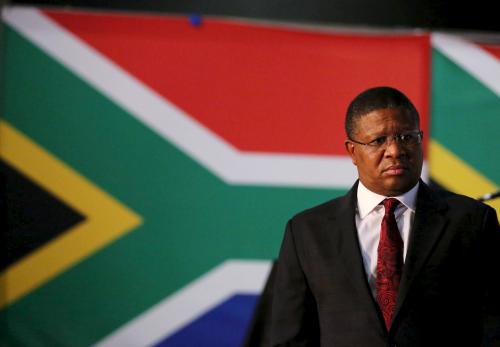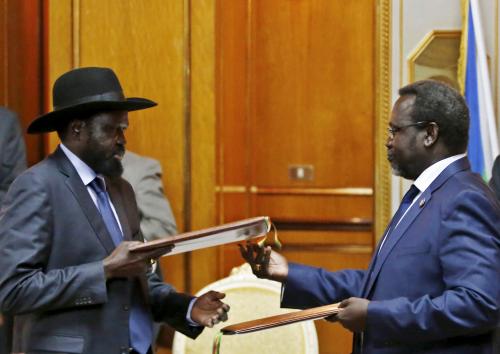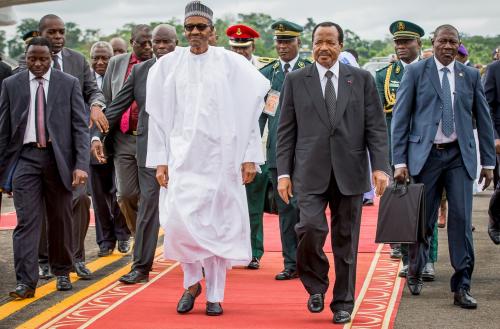African officials and multinationals exposed in Panama Papers scandal
This week, 11.5 million documents from Panamanian law firm Mossack Fonseca, which specializes in offshore holding companies, was leaked to media organizations including the BBC and the Guardian. The reports linked more than 140 public officials from several countries worldwide to overseas assets in tax havens. As a result, a number of government officials have faced scrutiny and criticism from their taxpayers. For example, Iceland’s prime minister resigned after the reports revealed that he had set up a company in the U.S. Virgin Islands to allegedly conceal a conflict of interest between his firm and a payout from Icelandic banks, which he helped to facilitate.
The reports also tied several prominent African businessmen and politicians to offshore assets and raised questions about the state of natural resource management and tax evasion in the subcontinent. Several high-profile figures were named, ranging from former Sudanese President Ahmad Ali al-Mirghani, whose offshore company held $2.72 million at the time of his death in 2008, to relatives of public officials, such as Kojo Annan, son of former U.N. general secretary whose offshore company owns a $500,000 apartment in London. Multinationals were also exposed for evading millions in taxes owed to African governments. For example, in Uganda, Heritage Oil and Gas Ltd Company enlisted Mossack Fonseca in order to change its corporate residence status to Mauritius, which has a double taxation agreement with Uganda, in order to avoid paying $404 million in capital gain taxes.
In recent years, African countries have been striving to fight illicit financial flows which direct funds away from their tax bases into tax havens, as the Panama Papers scandal revealed. Tax havens have helped multinational companies hide their immense profits overseas, thus perpetuating tax avoidance. In order to fight tax evasion, during the Financing for Development Conference in July 2015, African nations lobbied for legislation against tax avoidance, though this proposal has not yet been concretized.
Boko Haram has cost Nigeria $9 billion
On Monday, the Office of the Presidency of Nigeria announced that the North-east Nigeria Recovery and Peace-building Assessment (RPBA) conducted by the Nigerian government, European Union, United Nations, and World Bank had determined that Boko Haram has killed more than 20,000 Nigerians and displaced 1.8 million others throughout the course of its insurgency. Furthermore, economic recovery of the six northeastern states most affected by Boko Haram in Nigeria, including Adamawa, Bauchi, Borno, Gombe, Taraba, and Yobe, will cost more than $6 billion for immediate and near-term stabilization efforts, although the region has suffered nearly $9 billion in damages overall from Boko Haram. Between 2011 and 2015 alone, violence perpetrated by Boko Haram resulted in more than $6.4 billion in damages to the region, while Borno state—the state most affected by the insurgency—suffered nearly $6 billion in damages, including $3 billion in housing. Adamawa and Yobe were considered the second hardest hit states although all northeastern states have experienced the severe consequences as a result of Boko Haram’s reign of terror.
The RPBA recommended a two-year stabilization and recovery plan that aims to rebuild the region’s infrastructure and social services while also promoting social cohesion and inclusion of marginalized or vulnerable groups. In a statement about the plan, Vice President Yemi Osinbajo emphasized that the way forward involves finalizing the details of the plan and implementing it, stating, “Specifically the joint efforts of the federal and state governments with the global partners would now be directed to prioritizing the needed interventions and projects, arranging their sequence and coming up with an action plan.”
AU-UNECA conference discusses African industry and SDG implementation
During the annual joint African Union-United Nations Economic Commission for Africa (AU-UNECA) Conference of Ministers of Finance, Planning and Economic Development, which ended Tuesday this week, UNECA launched several publications focusing on strategies to support Africa’s implementation of the 17 sustainable development goals (SDGs). The 2016 edition of its flagship Economic Report on Africa, titled Greening Africa’s Industrialization, addresses SDGs 9 (industry, innovation, and infrastructure) and 13 (climate action) and argues that greening value chains is not only a viable route to generate low-carbon growth in Africa, but also can be leveraged to reduce environmental degradation, poverty, and inequality. Meanwhile, its report, Transformative Industrial Policy for Africa, finds that productive capability-building and creative policy design are especially important given certain changes in the global industrial policy environment, including shrinking policy space and the rise of global value chains.
For more information on trends and priorities in African industrialization, please see the recent Africa in Focus piece by John Page, Commodities, industry, and the African Growth Miracle, and register to attend the upcoming Africa Growth Initiative event: Made in Africa: Toward an industrialization strategy for the continent.
The Brookings Institution is committed to quality, independence, and impact.
We are supported by a diverse array of funders. In line with our values and policies, each Brookings publication represents the sole views of its author(s).







Commentary
Africa in the news: Panama papers expose tax evasion, Boko Haram takes heavy human and economic toll on Nigeria, and UNECA highlights African industry in new papers
April 8, 2016